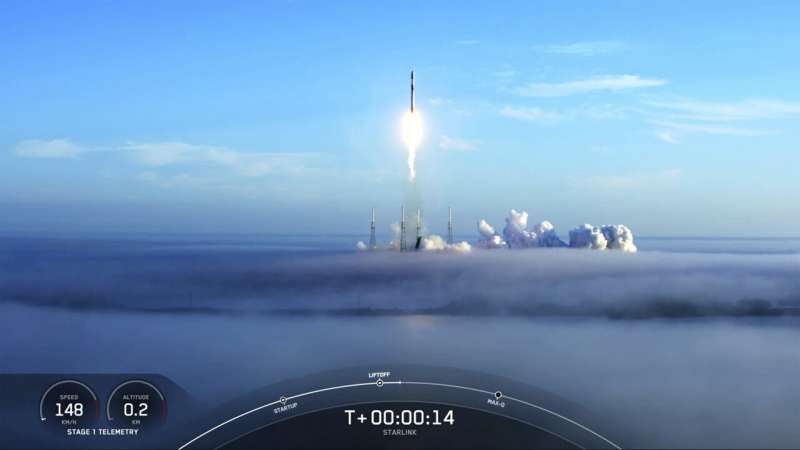
Copernical Team
Mars - or Arrakis
 Who hates deep sand traps more than golfers? Mars rover drivers (and probably Fremen too). When your vehicle is well over 50 million kilometers away from the nearest tow company, getting your wheels stuck in sand can be a mission-critical problem. Such a predicament ended the Spirit rover's mission in 2009.
Yet Perseverance is currently winding her way through the maze of towering sand dun
Who hates deep sand traps more than golfers? Mars rover drivers (and probably Fremen too). When your vehicle is well over 50 million kilometers away from the nearest tow company, getting your wheels stuck in sand can be a mission-critical problem. Such a predicament ended the Spirit rover's mission in 2009.
Yet Perseverance is currently winding her way through the maze of towering sand dun Curiosity powers on with extra energy for Martian science
 When the operations team logged on today, we were prepared to pick up where Monday's team had left off in Curiosity's ongoing drill campaign at Zechstein. But then we received some news: even though the original plan already included two hefty science blocks, the rover still had extra energy to spare!
In order to take advantage of this excess energy, the team added yet another science bloc
When the operations team logged on today, we were prepared to pick up where Monday's team had left off in Curiosity's ongoing drill campaign at Zechstein. But then we received some news: even though the original plan already included two hefty science blocks, the rover still had extra energy to spare!
In order to take advantage of this excess energy, the team added yet another science bloc A large asteroid will pass by Earth this week - should we worry?
 Recent weeks have witnessed a series of medium-to-large-sized asteroids cross paths with Earth's orbit. The largest of the pack - asteroid 2004 UE - is on track to make its closest approach to the planet Nov. 13. University of Illinois Urbana-Champaign astronomy professor and chair Leslie Looney spoke with News Bureau physical sciences editor Lois Yoksoulian about what researchers refer to as ne
Recent weeks have witnessed a series of medium-to-large-sized asteroids cross paths with Earth's orbit. The largest of the pack - asteroid 2004 UE - is on track to make its closest approach to the planet Nov. 13. University of Illinois Urbana-Champaign astronomy professor and chair Leslie Looney spoke with News Bureau physical sciences editor Lois Yoksoulian about what researchers refer to as ne Eagles complete CubeSat construction; next stop: the Moon
 In preparation for an upcoming moon mission, a team of engineers at Embry-Riddle Aeronautical University has completed construction of a miniature satellite camera system. The CubeSat, known as EagleCam, is en route to Intuitive Machines' headquarters, in Houston, Texas, this week where it will be integrated onto the Nova-C Lunar Lander spacecraft ahead of its scheduled mission to the moon in ea
In preparation for an upcoming moon mission, a team of engineers at Embry-Riddle Aeronautical University has completed construction of a miniature satellite camera system. The CubeSat, known as EagleCam, is en route to Intuitive Machines' headquarters, in Houston, Texas, this week where it will be integrated onto the Nova-C Lunar Lander spacecraft ahead of its scheduled mission to the moon in ea Virgin Orbit's begins pre-flight prep before its end of year flight
 A fully assembled rocket that will carry both Department of Defense and Polish SatRevolution satellites to space has arrived at the Mojave Air and Space Port after departing Virgin Orbit's Long Beach rocket factory Monday.
The rocket is now being mated to the customized 747 that serves as Virgin Orbit's flying and fully re-usable launch pad and mobile mission control, with expected launch
A fully assembled rocket that will carry both Department of Defense and Polish SatRevolution satellites to space has arrived at the Mojave Air and Space Port after departing Virgin Orbit's Long Beach rocket factory Monday.
The rocket is now being mated to the customized 747 that serves as Virgin Orbit's flying and fully re-usable launch pad and mobile mission control, with expected launch SpinLaunch conducts first successful test of giant 'suborbital accelerator' satellite sling
 In a development reminiscent of classic science fiction, a California-based startup has performed its first test of a device for launching satellites into space by accelerating them to fantastic speeds instead of loading them atop a rocket engine.
The company announced its successful October 22 test on CNBC on Tuesday, with CEO Jonathan Yaney saying the projectile reached an altitude of "t
In a development reminiscent of classic science fiction, a California-based startup has performed its first test of a device for launching satellites into space by accelerating them to fantastic speeds instead of loading them atop a rocket engine.
The company announced its successful October 22 test on CNBC on Tuesday, with CEO Jonathan Yaney saying the projectile reached an altitude of "t SpaceX deploys 53 Starlink internet satellites from Falcon 9 rocket
 SpaceX deployed 53 Starlink Internet satellites into orbit from a Falcon 9 rocket launched Saturday in a foggy flight from Cape Canaveral Space Station, Florida.
"You can see we did have successful deployment of our Starlink satellites here," SpaceX Dragon propulsion engineer Youmei Zhou said during live commentary. "Starlink is a satellite Internet constellation designed and manufactur
SpaceX deployed 53 Starlink Internet satellites into orbit from a Falcon 9 rocket launched Saturday in a foggy flight from Cape Canaveral Space Station, Florida.
"You can see we did have successful deployment of our Starlink satellites here," SpaceX Dragon propulsion engineer Youmei Zhou said during live commentary. "Starlink is a satellite Internet constellation designed and manufactur SpaceX launches 53 Starlink satellites into orbit

SpaceX expanded its constellation of low Earth orbit satellites on Saturday with the launch of 53 Starlink satellites from Florida.
A Falcon 9 rocket lifted off from Cape Canaveral Space Force Station at 7:19 a.m. EST and deployed the satellites about 16 minutes after launch.
An 'earthgrazer' flew 'a whopping 186 miles' over two states, then vanished, NASA says

A space object with an intimidating name—"earthgrazer"—zoomed over Georgia and Alabama this week, offering witnesses a glimpse of something rare, NASA says.
"Earthgrazers" are fireball meteors with a trajectory so shallow that they skim long distances across the upper atmosphere, NASA says.
"Very rarely, they even 'bounce off' the atmosphere and head back out into space," NASA Meteor Watch wrote on Facebook.
The fireball appeared Tuesday, Nov. 9, around 6:30 p.m. Eastern Daylight Time, officials say, and was "detected by three NASA meteor cameras in the region."
It entered the atmosphere "at a very shallow angle—only 5 degrees from the horizontal."
In fact, it was flying for so long that NASA had to recalculate its data to determine how far it traveled across the planet.
"The meteor was first seen at an altitude of 55 miles above the Georgia town of Taylorsville, moving northwest at 38,500 miles per hour," NASA says. Taylorsville is about 55 miles northwest of downtown Atlanta.
"Its path was so long that our automated software could not handle all the data. So we ran another analysis code this morning (Nov.
Throwing a Cosmic Kiss – Matthias Maurer's journey to the International Space Station
 Video:
00:02:42
Video:
00:02:42
ESA astronaut Matthias Maurer and NASA astronauts Raja Chari, Tom Marshburn and Kayla Barron liftoff to the International Space Station in the SpaceX Crew Dragon spacecraft “Endurance”.
Collectively known as “Crew-3”, the astronauts were launched from launchpad 39A at NASA's Kennedy Space Center in Florida, USA at 02:03 GMT/03:03 CET Thursday 11 November.
The spacecraft docked to the International Space Station at 00:32 CET Friday, 12 November/23:32 GMT Thursday, 11 November, marking the official start of Matthias's first mission.
Crew-3 will spend around six months living and working aboard the orbital outpost before returning to Earth. It is the first space mission for Matthias, who’s become the
